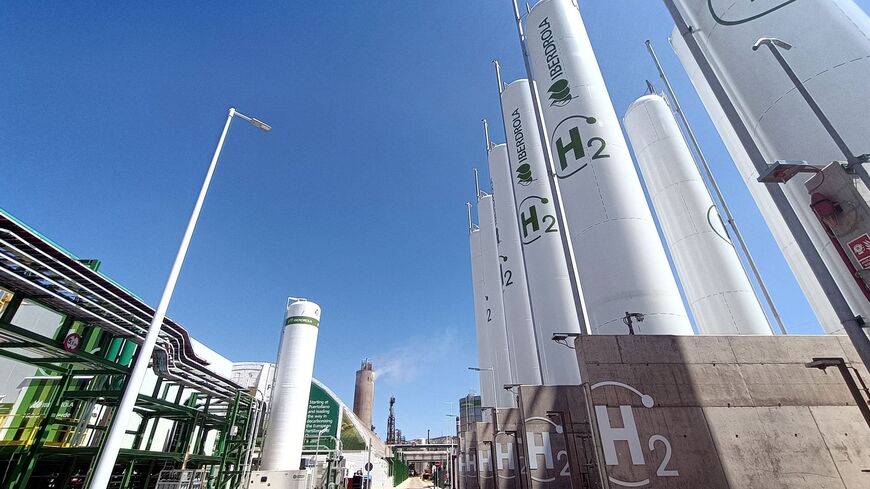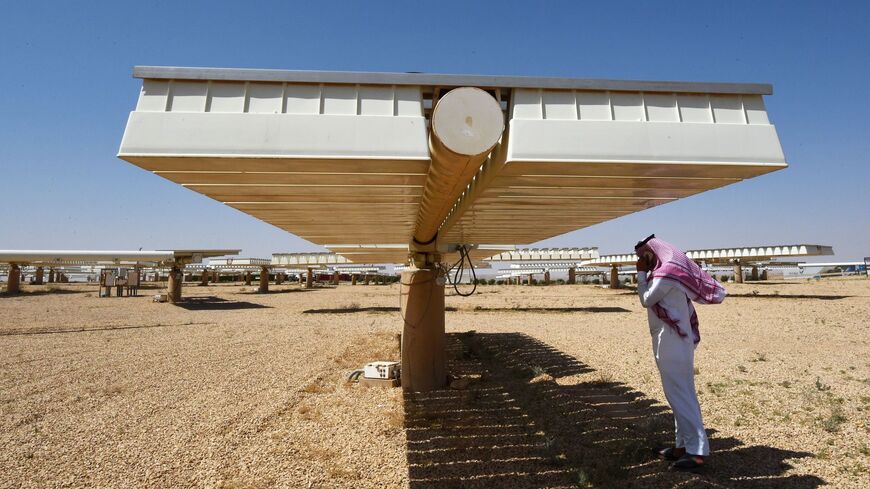Middle East businesses lack clear climate guidelines, WEF report warns
Middle Eastern and North African companies face increasing pressure from investors, regulators and global markets to strengthen transparency and adopt more sustainable business models.

Despite 70% of carbon emissions in the Middle East and North Africa now being included in net-zero pledges, many businesses still lack clear guidelines to successfully meet climate goals, a new report has warned.
The report released Thursday by the World Economic Forum and Bains Company covers how firms in the MENA region can prioritize sustainability in industries such as oil and gas, retail, finance and utilities.
MENA companies are facing increasing pressure from investors, regulators and global markets to strengthen transparency and adopt more sustainable business models, the report noted.
With 70% of the global economy expected to face mandatory sustainability reporting within the next two years, regional businesses urgently need to improve sustainability performance and transparency to remain competitive globally, the report recommended.
It added that MENA businesses often encounter significant challenges due to the lack of clear guidelines and best practice on reporting that are tailored to the region’s unique context.
“With its natural endowments of solar and wind energy, a ready supply of capital and a long-term focus among many of its governments, MENA is well-placed to leapfrog traditional development phases and integrate sustainability directly into its agenda for economic diversification and growth,” Maroun Kairouz, head of Middle East and North Africa for the World Economic Forum, said in the report.
“The proactive adoption of sustainability practices, supported by clear regulatory frameworks and incentives, is essential for the region to navigate this complex landscape successfully," he added.
The report suggested ways to help MENA companies align their practices with global sustainability standards, address specific regional challenges and strengthen resilience.
Among the case studies of best practices toward achieving these aims cited in the report included UAE retail company Majid Al Futtaim’s sustainable procurement policy and green Islamic bond (sukuk). The WEF said that what made the sukuk so successful was strong leadership support and an ability to navigate initial obstacles.
MAF’s initiatives linked to a 24% in scope 1 and scope 2 emissions from 2019 baseline and secured the company $2.75 billion in sustainability linked loans, the report said. Scope 1 and 2 carbon emissions are those produced by the company involved, not the consumer, e.g., the person using ADNOC fuel to drive a car.
Moroccan state-owned fertilizer company OCP Group’s green investment program was also highlighted as a strong example of a company meeting sustainability targets. The firm plans to produce 1 million metric tons of green ammonia by 2027 (with plans to increase to 3 million metric tons by 2032), generating 5 gigawatts of clean energy in 2027 (meeting 100% of OCP’s energy needs and increasing to 13 gigawatts by 2032), increasing seawater desalination capacity to 560 million cubic meters by 2027 and streamlining local value chains. These commitments will help OCP achieve carbon neutrality in operations and energy sources (scope 1 and scope 2) by 2030.
The report stressed that government leadership remains crucial in helping MENA firms achieve sustainability goals. The white paper recommends policymakers continue to set clear regulations, provide financial incentives and support collaboration between public and private sectors to accelerate the region’s transition to a more sustainable economy.







